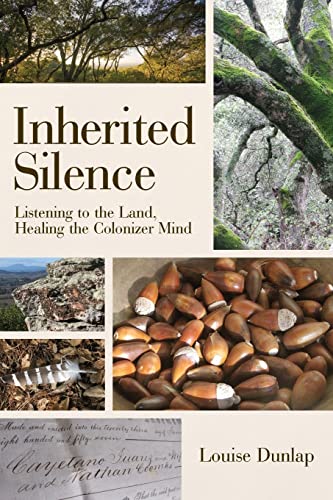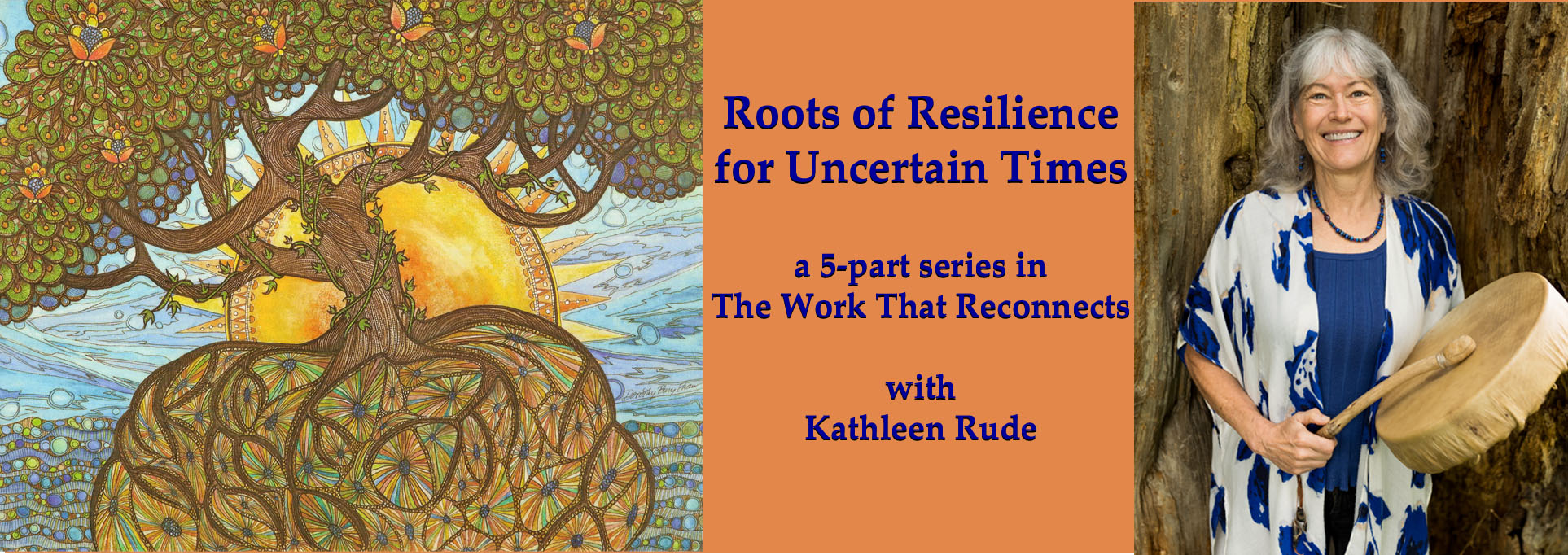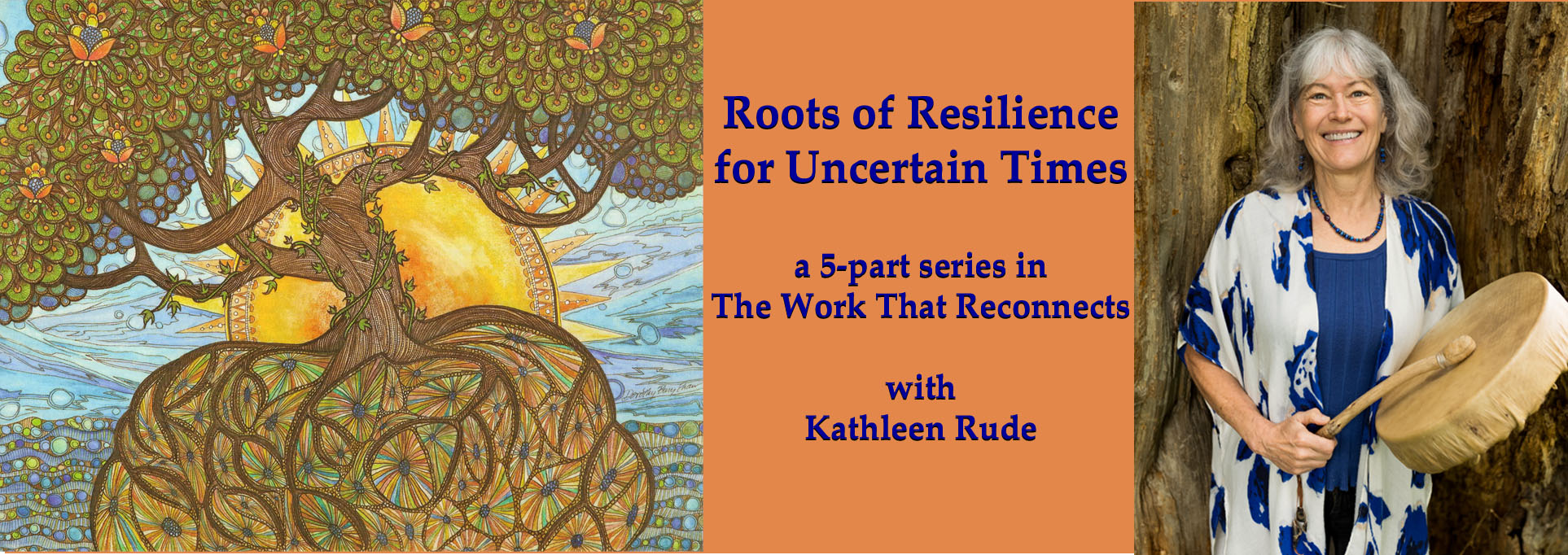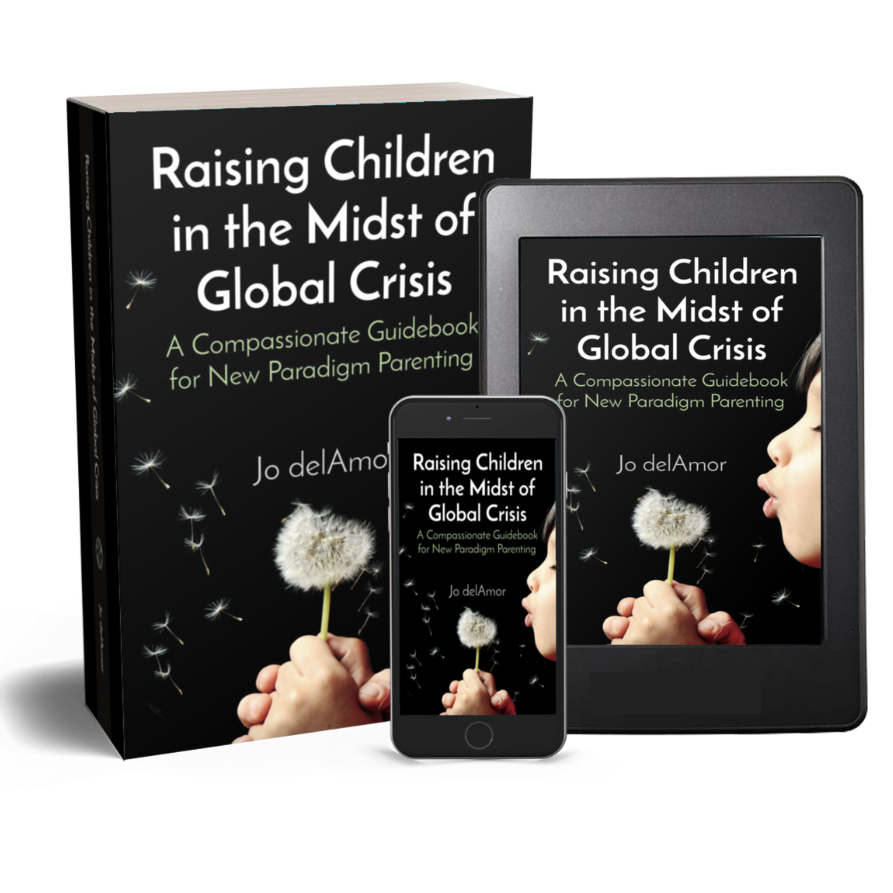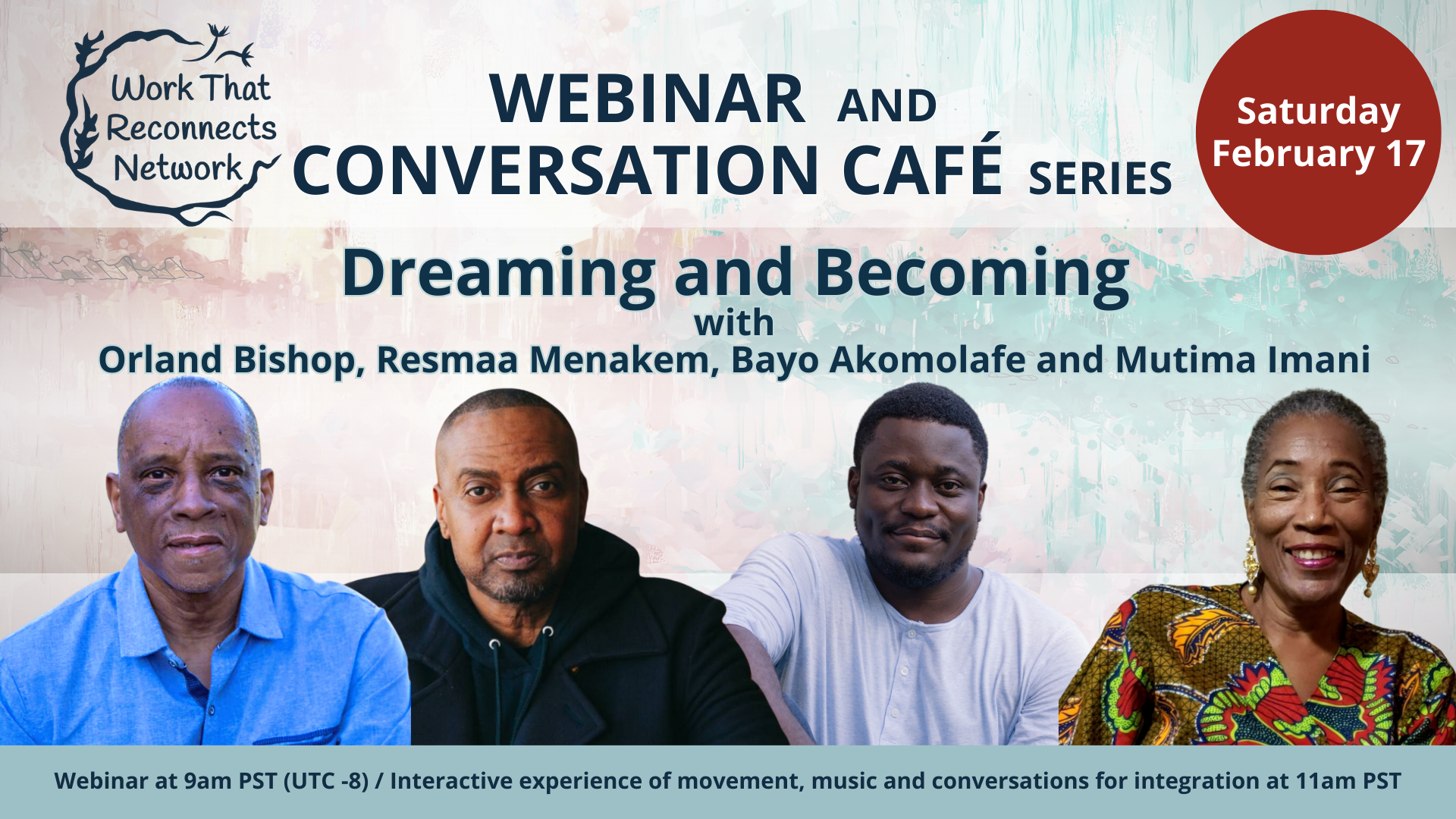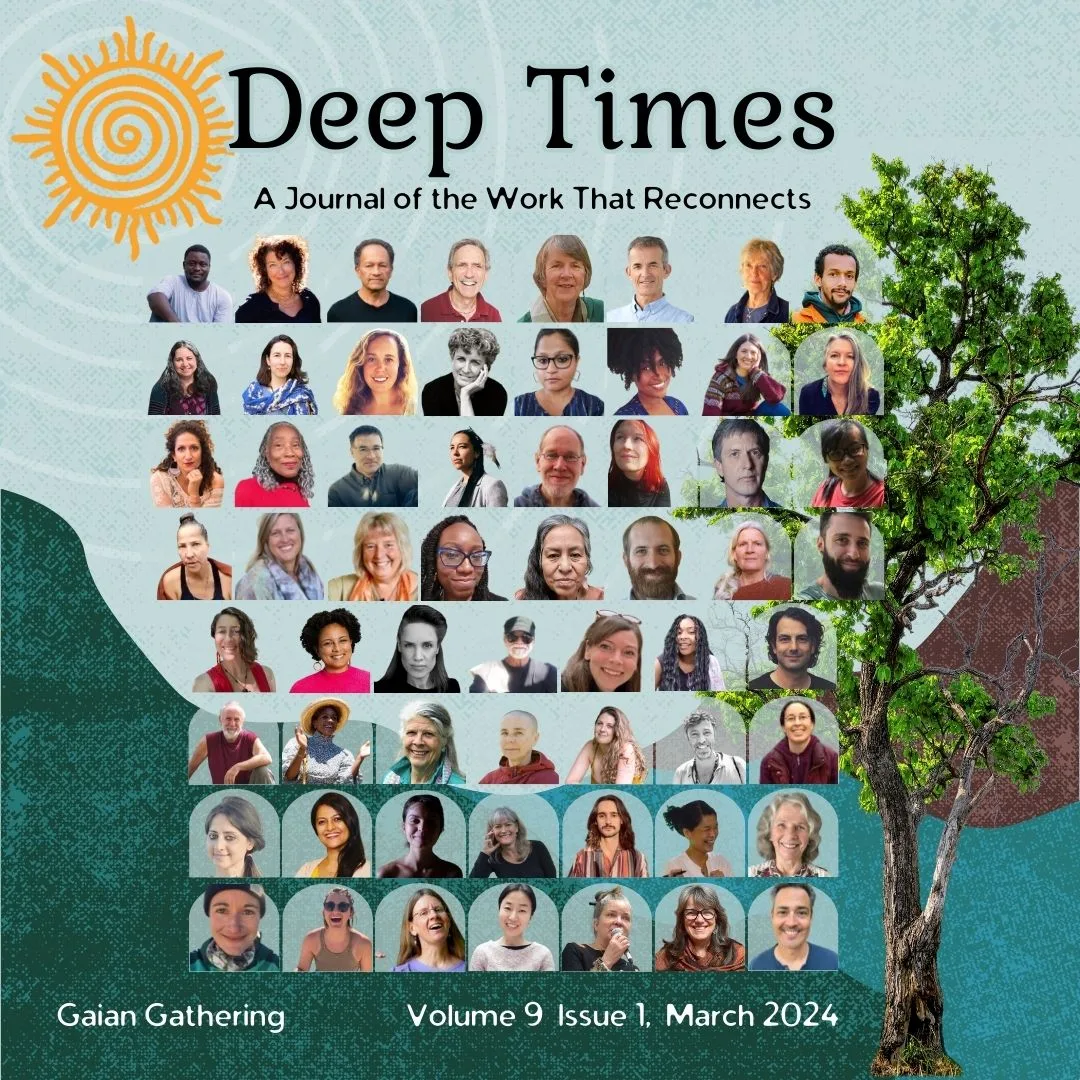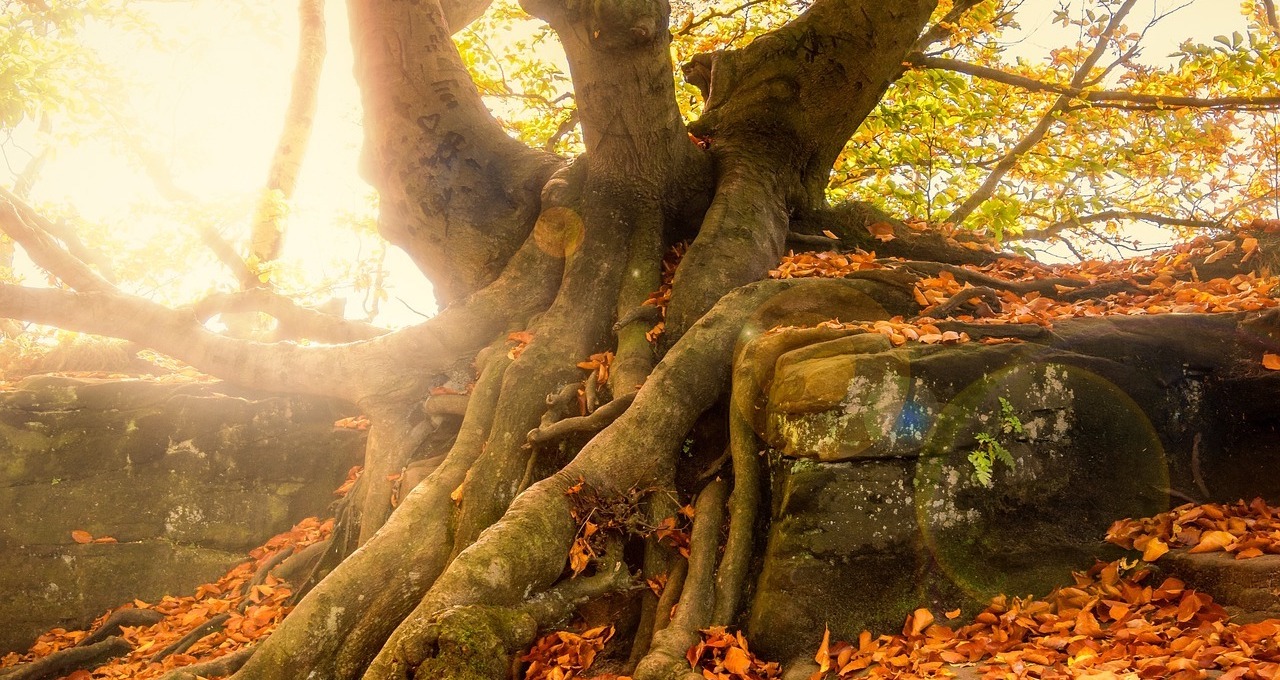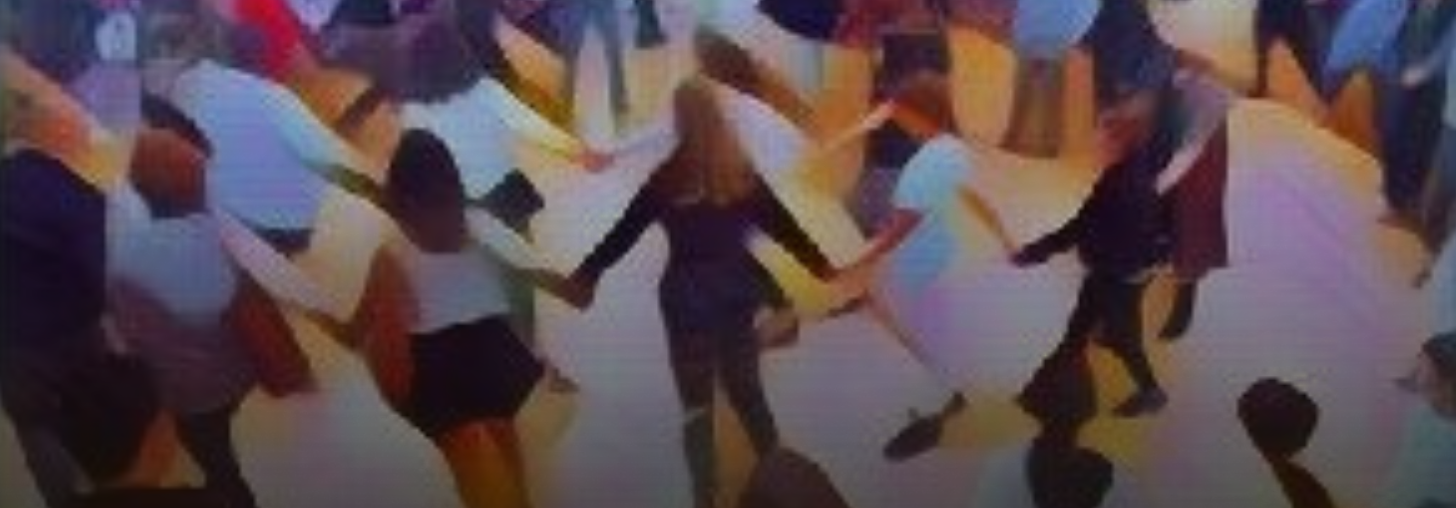- Practices
- Seeing with New/Ancient Eyes
- Living Systems/Deep Ecology
- Emerging Facilitators
- Facilitators
- Youth
- Parents
- Teachers
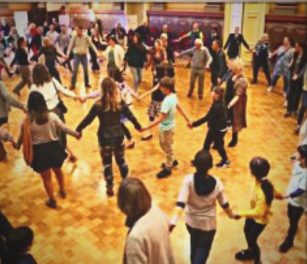
The Systems Game
from chapter 8 of Coming Back to Life by Joanna Macy and Molly Brown; second edition, published 2014. Please acknowledge the source when you use any of these practices.
Time: 30 minutes
This lively, engrossing process provides a direct experience of the dynamic nature of open systems. It dramatizes two features of the new paradigm view of reality:
- life is composed not of separate entities so much as of the relations between them
- these relations allow life to self-organize.
Method
Have people stand in a circle within an open space large enough for them to move around freely. Then give two instructions.
- “Mentally select two other people, without indicating whom you have chosen.”
- “Move so as to keep at all times an equal distance between you and each of these two people.”
Demonstrate that this does not mean just staying at the midpoint between the two others.
At your signal, people begin to circulate, each movement triggering many others in an active, interdependent fashion. People find they are, by necessity, maintaining wide-angle vision and constant alacrity of response. The process is purposeful, suspenseful, laced with laughter. It speeds up for a while, then may abate, accelerate, and again slow down toward equilibrium, but it rarely comes to stasis. Let it continue for some minutes, then tell people to stop and reflect together.
The simple question, “What did you experience?” evokes fruitful discussion.
- People’s reflections usually bring out some key features of self-regulating systems, such as the interdependence of all parts, and their continual activity in seeking and maintaining balance.
- People may realize that they thought the point of the game was to achieve stasis; you can bring out and challenge that assumption. The self-regulation of open systems requires constant internal activity.
- People may articulate perceptual and psychological shifts they experienced in the game. These can include a radically widened sense of context, and a larger, more porous sense of self. A temporary eclipse of self-consciousness may be noted, as one’s perceptions focused more on others’ actions than one’s own– that is, not on separate entities so much as on relations among them.
- “Is this a closed system or an open system?” you may ask. If people think it is a closed system because no one entered from outside, you can point out that energy originating from the sun powers everyone present. We wouldn’t last long without food or drink from outside the system we just created. Individually and collectively, we are open systems dependent on inputs of matter-energy and information. Closed systems do not exist in nature.
- “What feedback enabled us to fulfill our function (that is of staying equidistant from two others)?” If there is no answer, you may ask, “Could we have done it with our eyes closed?” You may note that not only visual perceptions, but feedback of all kinds guide us in our daily lives.
- “Would anyone volunteer to organize this process?” It is obvious that no party or person on the outside could direct the movements necessary to keep this system in balance.
Variations
Endangered Ecosystem
Have everyone repeat the process, but this time tell them you will move through them and surreptitiously tap one person on the shoulder. After silently counting to five, this person will sink to the floor or squat down. Then anyone who has chosen to move in relation to this person will also silently count to five and sink down; and then those whose movements have been affected by these will follow suit, until the whole group is down. After starting out slow, the progression begins to accelerate and ends in a cascade effect that is sobering and instructive.
If, after you tap someone and they go down, nothing else happens, you realize no one else chose this person—so you go tap another.
Social innovation
As a follow on to “Endangered Ecosystem,” have the whole group start out squatting down. Walk through and secretly tap someone; this person silently counts to five and then rises, and so on. The above process now plays out in reverse, illustrating the accelerating effect of new ideas or behaviors spreading throughout a social system.
Social restrictions
As a follow on to the original game, and maintaining the same relationships, immobilize two or more players and then proceed. In the discussion that follows, people may reflect on the diminished fluidity they sensed in the group as a whole, or on their own experience if one of their partners didn’t move. The decreased responsiveness is often experienced as a dysfunction within the system, and comments on this fact can bring fresh insights.
Large-scale exercise
A variation used by Mark Horowitz involves a group of 75 or more. Here some 20 volunteers play the game with the remainder as audience. This works best when the audience sits around a central area where the game is played.
The guide takes the volunteer players aside to give instructions. Meanwhile, the audience is instructed to observe the action and try to figure out what is going on. If the seating allows, audience members may move around to observe from different angles. Then the game begins, while the audience observes with bemusement.
After a few minutes, the guide asks four or five audience members to act as consultants to this “organization”. Their task is to line up the players in order of height. This will prove to be impossible, because the players don’t stay still.
After some more minutes, the players are signaled to stop in place and the guide asks the audience what they observed and what they thought was happening. The explanations offered are often creative, even hilarious.
The consultants are then asked to report their (probably frustrating) experience, thereby illustrating the absurdity of trying to intervene in a system (human or other) without first learning what the system is doing and what its “rules” are.
Finally, unless someone in the audience has figured out what was going on, the players explain the rules of the game, as well as share their experience and what they learned in the process.
Online Adaptation
An online adaptation of the Endangered Ecosystem and Social Innovation variations of this practice was created in 2021 by Charlotte Ogier, Brianne Parquier and Kelly Motte Kronheim to accompany the release of the film Once You Know. (also available in French)
